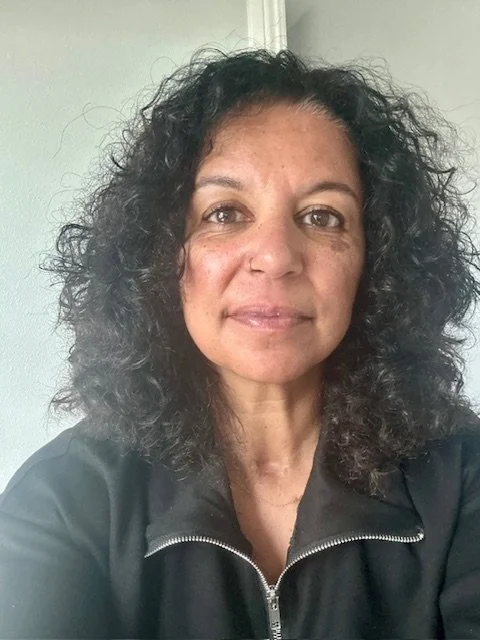Lynda Douge: Finding Purpose After a Life-Changing Brain Injury
Can you share about the brain injury event itself?
On February 25, 2021—the day of my 25th wedding anniversary—I was struck by an SUV while crossing a boulevard at a pedestrian crosswalk. The light was green for pedestrians. I was thrown into the air and landed on the right side of my head. I was admitted to the trauma ICU for two and a half weeks, including nine days in an induced coma. After that, I spent three weeks in inpatient rehabilitation.
How did you feel during the first days, weeks, or months after the injury?
I was in a complete fog—lost, confused, and profoundly lonely.
What kind of rehabilitation therapies or treatment have been most helpful through the process of recovery?
Every therapy has played a role in my recovery—occupational therapy, physical therapy, speech therapy, and counseling for PTSD. They continue to help me regain a sense of normalcy.
What have been some of the biggest challenges you or your loved one has faced during recovery?
At first, overwhelming loneliness, a lack of understanding and resources, and a deep sense of loss. Later, coming to terms with the physical and mental changes was a difficult process.
If there have been setbacks or repeated injuries, describe that journey:
Accepting the loss of mobility has been a major challenge. After completing an intense round of physical therapy, I worked hard to regain my independence—only to be told I was in the high-risk fall category. I had to start using a cane, which was heartbreaking to accept. Before my injury, I was a runner and hiker.
How has your life changed since the brain injury?
Everything has changed—but because of my partial retrograde amnesia, I can’t fully recall what life was like before.
What role has support from family, friends, or community played in your journey?
The love and encouragement from my family and friends have given me the strength to keep going. My fellow TBI survivors in my support group have been the wind beneath my wings.
Have there been any moments of breakthrough or unexpected positives along the way?
My biggest breakthrough was realizing that God gave me a second chance at life. I now see my purpose: to be a champion and advocate for the TBI survivor community and for individuals with disabilities in the workplace.
What has surprised you about this journey with brain injury?
While my brain injury is unique, I have found myself surrounded by so many incredible survivors—warriors just like me.
What do you know now that you wish you knew at the beginning of this journey?
The journey is a lifelong commitment, but it’s full of silver linings to focus on.
What does "hope" mean to you?
Hope is trusting that everything is possible
If you could share one encouraging message with another survivor or family, what would it be?
"Take it one day at a time. Yesterday is gone—you cannot change it. Tomorrow isn’t guaranteed and isn’t here yet. Focus on the present. Savor the moment.
There will be ‘two steps forward, three steps back’ moments. It’s okay to pause, regroup, and pivot if needed—but ALWAYS get back up and keep moving forward."

